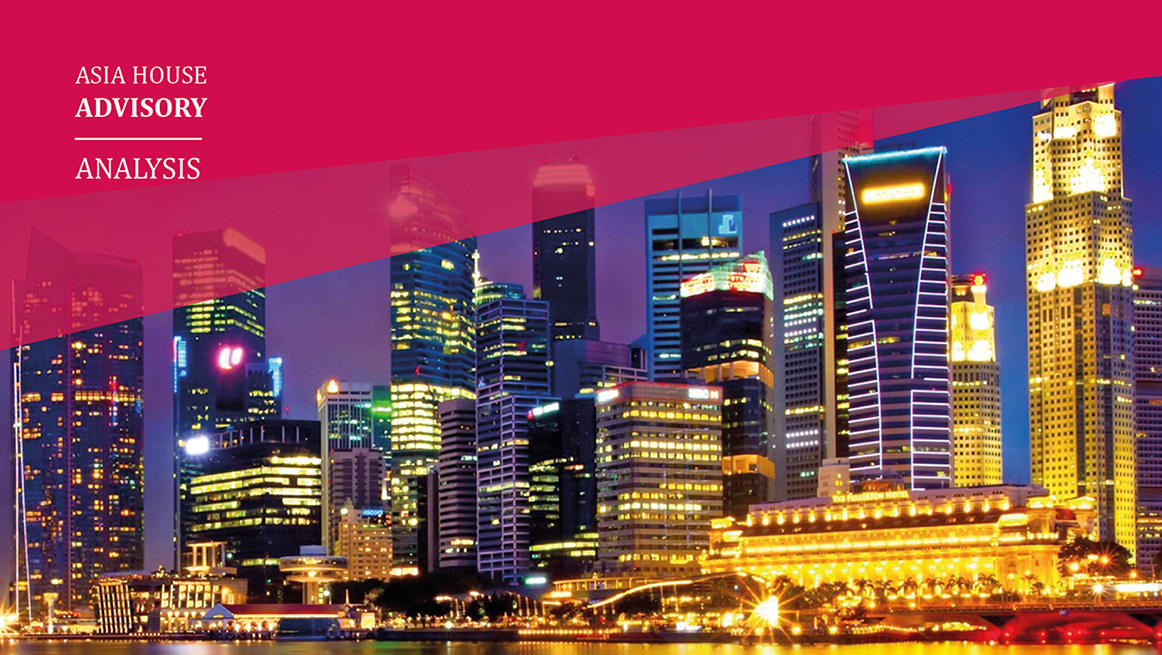Driving commercial and political engagement between Asia, the Middle East and Europe
Driving commercial and political engagement between Asia, the Middle East and Europe
Driving commercial and political engagement between Asia, the Middle East and Europe

Asia House Advisory share key takeaways from Singapore’s general election.
Singapore is one of only a few countries globally to have gone ahead with national elections during the COVID-19 pandemic, with voters going to the polls on 10 July. The pandemic was widely expected to sway voters towards a ‘flight to safety’ and guarantee a strong mandate for the ruling People’s Action Party (PAP) – but these elections instead saw unprecedented gains for the opposition.
Though the PAP retained its supermajority in parliament – winning 83 of a possible 93 seats – the opposition made strong inroads.
Rather than directly opposing the PAP, the opposition sought to deny the ruling party a ‘blank cheque’ and portrayed themselves as responsible opponents seeking to inject fresh viewpoints into the national conversation and offer a wider pool of policy solutions.
This resulted in the PAP taking 61.2 per cent of the popular vote – an historic low – though still maintaining its supermajority in parliament. The opposition Workers’ Party took a record 10 seats in this election, unexpectedly taking two group representation constituencies (GRCs) and a single member constituency (SMC) almost doubling its seats in parliament.
The pandemic put the spotlight on pre-existing economic and social issues already. Questions such as taxation, minimum wages, foreign worker policies, and the country’s reliance on overseas corporations, remained at the forefront of voters’ minds.
Faced with an election that weakened the PAP’s mandate rather than strengthened it, and, combined with this week’s report of a 41.2 per cent collapse in GDP (quarter-to-quarter) in Q2, the government will have to reflect on its plans for economic policy and recovery post-COVID-19.
Prime Minister Lee Hsien Loong has – post election – hinted at the need for change, acknowledging that government policy must better reflect a new generation’s different priorities and the desire for a diversity of voices in parliament. Some issues for businesses to look out for include:
A review of outward looking policy – foreign investment and foreign worker policies
Debates on foreign workers in Singapore were a hot topic during the campaign – with opposition parties arguing that the PAP was looking to boost the country’s population to 10 million in the next five years, largely through greater numbers of foreign workers.
The government may review its foreign worker policy – similar to moves made after the 2011 elections, in which the government, following the receipt of another reduced mandate, tightened curbs on foreign workers.
Similarly the country’s reliance on multinationals remains a growing issue – but, not least in consequence of collapsing GDP figures, the government will continue to welcome foreign investment to encourage sustainable economic growth, and will continue to invest heavily in research and development in high-growth, high-value sectors. The government has invested heavily in R&D in areas such as artificial intelligence and biomedical science as part of ongoing efforts to digitalise the economy.
Positioning as an attractive alternative to Hong Kong
Given increasing concern around the future of Hong Kong – following the passage of new legislation on national security issues in the city -businesses are increasingly assessing alternative options for their Asia Pacific headquarters and operations.
Singapore is likely – as the other major business hub in the region – to definitively position itself as a viable alternative to Hong Kong, especially for major multinationals.
A recalibration towards social support
The government is likely to look at reviewing its social security safety net for Singaporeans given the intensity of debate on the issue during elections. Both minimum wage and social security were a key pillar of many opposition parties’ campaign platforms, and given the opposition’s historic wins this year, will likely be put under review.
Despite a renewed focus on these issues, materially, the government will continue stressing to the business community that it is not becoming more insular. In the short to medium term, Singapore is likely to remain as business friendly as it has historically been by continuing to encourage inward foreign investment and maintaining its ‘easy to do business’ environment.
Hot on the heels of the election, the release of official Q2 economic data – showing a 12.6 per cent annualise drop in GDP and a 41.2 per cent quarter-to-quarter drop – provides an additional challenge for the government.
The government has already allocated US$67 billion as part of special budgets to cushion the economic impact of the pandemic and has dipped into its reserves for only the second time since independence. But the severe economic contraction has moved Singapore into a technical recession for the first time since the global financial crisis in 2008.
